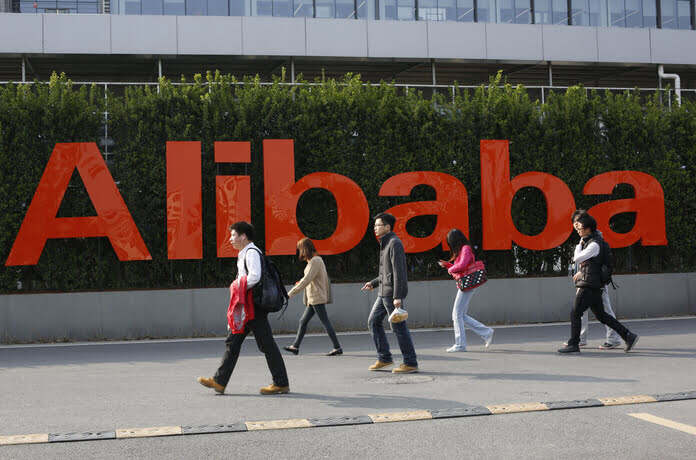As U.S. stocks maintain a robust performance this year, the situation for Chinese stocks listed in Shanghai and Hong Kong is less favorable. Particularly, the tech sector, which has been a driving force in the U.S. market rally in 2023, shows a stark contrast in performance.
Alibaba (NYSE:BABA) and JD.com (NASDAQ:JD) have experienced declines of 7.1% and 54% Year-to-Date (YTD), respectively, while Amazon (NASDAQ:AMZN) shares have surged by an impressive 67% over the same period. The divergence in these trends is attributed to the ongoing repercussions of China’s scrutiny of Alibaba since late 2020, including the interference with the IPO of its affiliate company, Ant Financial.
Chinese tech stocks have faced headwinds not only from the 2021 tech crackdown but also from the controversial zero-COVID policy causing disruptions in global supply chains. Tensions between the U.S. and China, coupled with a slowdown in China’s economic growth rates and a real estate crisis, have led many fund managers to view Chinese stocks as “uninvestable.”
Despite these challenges, some argue that Chinese stocks may present opportunities, especially considering the absolute dollar growth potential of the Chinese economy, projected at 5.4% for 2023 by the International Monetary Fund (IMF). This growth trend is anticipated to continue in the coming years.
Among the various sectors in the Chinese economy, the e-commerce industry appears well-positioned. Aligned with the Chinese government’s goal of boosting domestic consumption, e-commerce continues to outpace overall retail sales in China, mirroring global trends.
Choosing Between Alibaba and JD.com
While there are several e-commerce plays in China, including PDD Holdings, this analysis focuses on BABA and JD, both of which derive the majority of their revenues from China. However, JD is primarily an e-commerce play, while Alibaba’s revenue streams are more diversified, encompassing significant cloud and growing artificial intelligence (AI) operations.
In terms of growth expectations, Wall Street analysts project Alibaba’s revenues to rise 10.5% and 9.4% Year-over-Year (YoY) in fiscal years 2024 and 2025, respectively, with expected increases in earnings per share (EPS) of 25% and 12% during the same periods. On the other hand, JD is forecasted to experience sales growth of 3.4% in 2023 and 8% in 2024, with a 31% rise in EPS for the current year but a nearly flat projection for the next.
Analyst Sentiment and Valuation
Wall Street analysts exhibit a bullish stance on BABA, giving it an average Strong Buy rating with a mean target price of $141, representing a 72% premium to current prices. In contrast, JD holds an average Moderate Buy rating, with only 57% of analysts considering it a Strong Buy, compared to 85% for BABA.
In terms of valuation, JD trades at a next 12 months price-to-earnings multiple of 8x, while BABA trades at 9.2x. Considering the current levels, BABA seems to offer a more compelling investment case. Alibaba’s past challenges with the Chinese government appear to be receding, and its business restructuring could unlock additional value. Furthermore, the potential listing of Ant Financial could provide a monetization opportunity, and the market might not fully appreciate the company’s foray into AI.
While JD stock also presents itself as undervalued and a viable investment, when compared with BABA, the latter emerges as a more attractive proposition with a favorable risk-reward profile.
Featured Image: Megapixl














